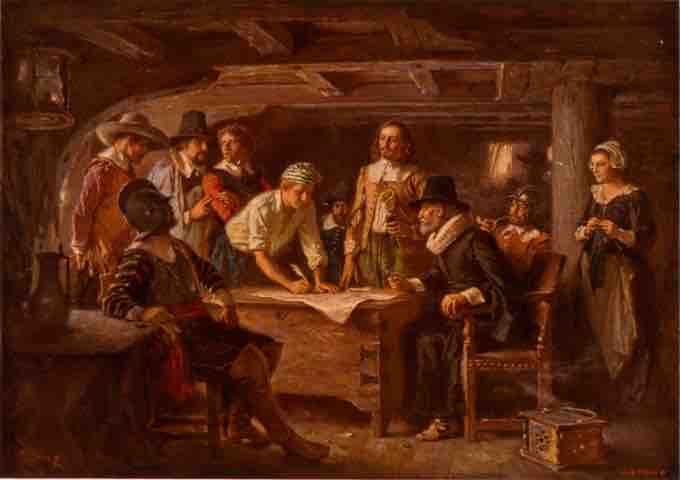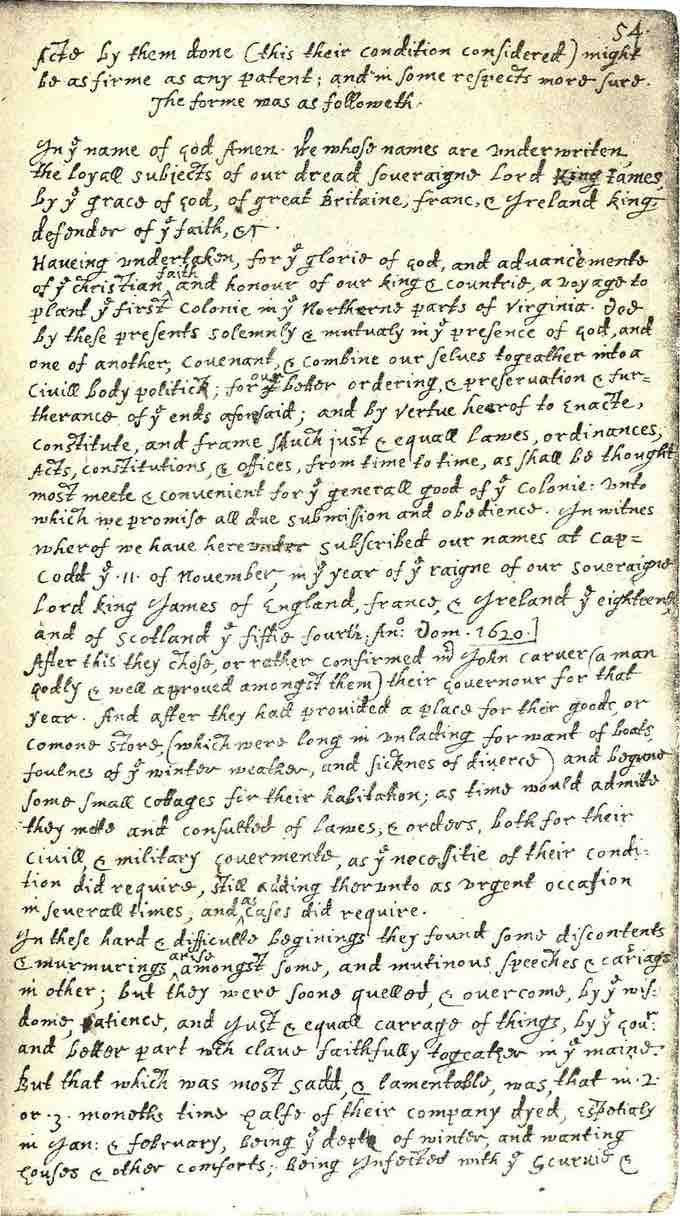Self-Government in the Colonies
A self-governing colony is a colony in which elected rulers are able to make most decisions without referring to the imperial power (such as England), with nominal control of the colony. Colonies have sometimes been referred to as self-governing in situations where the executive has not been under the control of the imperial government; the term self-governing can refer to the direct rule of a Crown Colony by an executive governor elected under a limited franchise. This type of government was seen in Plymouth Colony between 1630 and 1684.
Plymouth and the Mayflower Compact
The Mayflower Compact was the first governing document of Plymouth Colony. It was written by separatists, or Puritans who were fleeing religious persecution by King James of England. They traveled aboard the Mayflower in 1620 along with adventurers, tradesmen, and servants. The Mayflower was originally bound for the Colony of Virginia, financed by the Company of Merchant Adventurers of London. Storms forced them to land at the hook of Cape Cod, however, in what is now Massachusetts. This inspired the passengers to proclaim, since the settlement would not be made in the Virginia territory as agreed, that they would use their own liberty and that no one had power to command them.

The Mayflower Compact, by Jean Leon Gerome Ferris
In 1620, the Mayflower Compact became the first governing document of Plymouth Colony.
Many of the colonists chose to establish a government. The Mayflower Compact was based simultaneously on a majoritarian model (even though the signers were not in the majority) and the settlers' allegiance to the king. It was in essence, a social contract in which the settlers consented to follow the compact's rules and regulations for the sake of survival. Thus, the colonists sincerely believed that they had the right to govern themselves, being separated from Britain by an ocean and having founded an entirely new society. In Plymouth's form of self-government, the colony was led by a governor and local legislature elected by a local oligarchy; the governor was appointed by the colonial power rather than the English Crown.

Copy of the text of the Mayflower Compact created by William Bradford ca. 1645
The Mayflower Compact was signed on November 11, 1620, by 41 passengers while the Mayflower was anchored at the tip of Cape Cod.
Self-Government Through the 17th and 18th Centuries
The idea of self-government was encouraged by the Glorious Revolution and the 1689 Bill of Rights which established that the British Parliament—and not the king—had the ultimate authority in government. In the 1730s, the Parliament began to pass laws regulating their colonies in the Americas. The Sugar Act established a tax of six pence per gallon of sugar or molasses imported into the colonies, and by 1750, the Parliament had begun to ban, restrict, or tax several more products. This provoked much anger among the colonists, despite the fact that their tax burdens were quite low when compared to most subjects of European monarchies of the same period. Slowly, as interference from the Crown increased, the colonists felt more and more resentful about British control over the colonies.